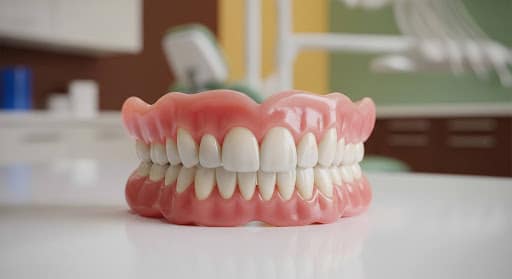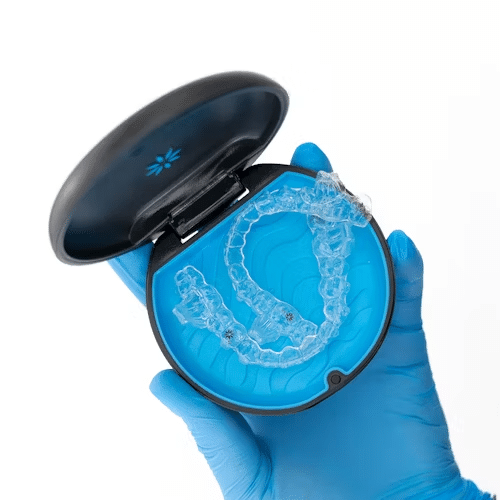Dentures Near You: Are Dentures the Right Option For You?

Facing tooth loss is a significant challenge that affects more than just your appearance. It impacts how you speak, what you can eat, and how often you feel like sharing your smile with the world. Modern dentistry offers several effective solutions to restore your oral health, and for many people, dentures remain the most reliable and affordable choice. At Smith Dental Care in Tyler, Texas, we specialize in helping patients navigate these options to find a customized fit that feels natural and comfortable.
Understanding Your Options for Dentures Near You
When you begin searching for dentures near you, it is helpful to understand that modern prosthetics are much more advanced than the versions your grandparents might have worn. Today, materials like high-quality acrylic and porcelain offer a look that mimics natural teeth and gum tissue with incredible accuracy.
At Smith Dental Care, we provide several different types of dentures to meet various needs:
- Full Dentures: These are used when all teeth in either the upper or lower arch are missing. They rest on the gums and are held in place by suction or a thin layer of adhesive.
- Partial Dentures: If you still have some healthy natural teeth, a partial denture can fill the gaps. These typically use a discreet framework to attach to your existing teeth, preventing them from shifting.
- Implant-Supported Dentures: For those seeking maximum stability, dentures near you can be anchored to dental implants. This prevents the “slipping” sensation sometimes associated with traditional removals.
Signs It Might Be Time for Dentures
Deciding to move forward with dentures is a personal choice made in consultation with your dentist. However, there are several common indicators that this restorative path might be the best way to regain your quality of life.
Persistent Tooth Pain and Decay
If you struggle with chronic toothaches or advanced decay that fillings and crowns can no longer fix, removing the damaged teeth and replacing them with a prosthetic can offer immediate relief from pain.
Difficulty Eating Certain Foods
Do you find yourself avoiding steak, apples, or crunchy vegetables because your teeth are too weak or are missing? Proper nutrition is vital for your overall health, and dentures allow you to return to a more varied and healthy diet.
Shifting Teeth or Receding Gums
When you lose even one or two teeth, the remaining teeth often begin to shift into the empty space. This movement can lead to further tooth loss and jawbone issues. A partial denture acts as a placeholder, keeping your natural smile aligned and supported.
The Benefits of Choosing Dentures Near Me
One of the biggest advantages of seeking “dentures near me” in Tyler is the convenience of local care. The process of getting dentures involves several steps, from initial impressions to final fittings. Having a local team means you can easily stop by for minor adjustments as your mouth adapts to the new prosthetic.
Improved Speech and Confidence
Missing teeth often cause a slight lisp or change the way you pronounce certain words. Dentures provide the structural support your tongue needs for clear speech. Furthermore, the aesthetic boost of a full smile can significantly improve your self-esteem in social and professional settings.
Support for Facial Structure
Teeth do more than just chew; they support the muscles in your face. Without them, facial muscles can sag, leading to a prematurely aged appearance. Dentures help “fill out” your profile, maintaining the natural shape of your face and jawline.
What to Expect During the Process
The journey to a new smile starts with a comprehensive consultation at Smith Dental Care. During this visit, we take digital X-rays and iTero digital impressions to create a precise map of your mouth. We believe in a patient-centered approach, meaning we listen to your concerns about comfort, appearance, and budget before recommending a specific type of denture.
Once your custom dentures are fabricated, you will return for a fitting. We take great care to ensure the bite is aligned and the fit is snug yet comfortable. It is normal to experience a short adjustment period as you learn to eat and speak with your new teeth, but our team is here to support you with follow-up appointments and maintenance tips to ensure long-term success.

Why Tyler Patients Trust Smith Dental Care
Choosing a dental provider for such a life-changing procedure requires trust. At Smith Dental Care, we prioritize your comfort by offering sedation dentistry for patients who feel anxious about extractions or fittings. Our goal is to provide a judgment-free environment where you feel empowered to take control of your oral health.
Whether you are looking for your first set of teeth or need to replace an old, ill-fitting pair, finding quality “dentures near me” is the first step toward a brighter future. We work with various insurance providers and offer financing options to ensure that a healthy smile is accessible to everyone in our community.
Take the Next Step Toward a Brighter Smile
Are you ready to stop hiding your smile and start enjoying your favorite foods again? Don’t let tooth loss hold you back from living your best life. Our experienced team is ready to help you explore your options and find the perfect fit for your lifestyle and goals.
Contact Smith Dental Care Today to Schedule Your Consultation!
- Call Us: (903) 534-1171
- Visit Us: 5400 New Copeland Rd, Tyler, TX 75703
- Book Online: Request an Appointment




